 “Better Living Through Algorithms” by Naomi Kritzer in Clarkesworld Magazine Issue 200, May 2023) by Naomi Kritzer
“Better Living Through Algorithms” by Naomi Kritzer in Clarkesworld Magazine Issue 200, May 2023) by Naomi Kritzer Narrator: Kate Baker
Format: ebook, podcast
Source: podcast, supplied by publisher via Hugo Packet
Formats available: ebook, magazine, podcast
Genres: hopepunk, science fiction, short stories
Series: Clarkesworld Magazine Issue 200
Pages: 13
Length: 36 minutes
Published by Clarkesworld Magazine on May, 2023
Purchasing Info: Author's Website, Publisher's Website, Amazon, Barnes & Noble, Kobo
Goodreads
Clarkesworld Magazine, May 2023 issue (#200) contains:
- Original fiction by Naomi Kritzer ("Better Living Through Algorithms"), Harry Turtledove ("Through the Roof of the World"), Suzanne Palmer ("To Sail Beyond the Botnet"), Rich Larson ("LOL, Said the Scorpion"), Parker Ragland ("Sensation and Sensibility"), Megan Chee ("The Giants Among Us"), An Hao ("Action at a Distance"), and Jordan Chase-Young ("The Fall").
- Non-fiction includes an article by Carrie Sessarego, interviews with Premee Mohamed and Megan O'Keefe, and an editorial by Neil Clarke.
My Review:
This story was simply adorable – if both realistic and a bit sad. And sad because it was realistic and realistic because sad. With just the right tinge of hope to lift it up at the end.
It’s also surprisingly SFnal for a situation that sits in the uncanny valley where what used to be SF has become the real. It feels like it’s part of the lab-based SF tradition but there’s no actual lab. Or we’re all the lab. Or a bit of both.
Let me explain – or at least try.
Better Living Through Algorithms is set either in the RIGHT NOW or at a point in time so close that it might as well be now. It doesn’t need any aliens or space ships and there’s no computer virus running amuck.
What there is is an app. Just like now. But the app isn’t exactly like any of the usual suspects – although it’s perfectly capable of seeming like any or all of them.
Abelique combines elements of a productivity app, and a time management app, and a health monitoring app, wraps the whole thing up in a self-reflective little bow and ties it off with a bit of mystery.
When Linnea first hears about Abelique from her early-adopter friends, it sounds like a cult and she’s NOT INTERESTED. When her boss pushes her to try it – at work – he makes it sound like a productivity app. He also makes it sound like she’d better just do it.
So she does – to the point of doing the long and somewhat intrusive setup on work time – because if her boss is making references to her last and next evaluations as he’s “encouraging” her, it is. But Linnea gets hooked on Abelique the minute that it tells her it will help her lie to her boss. Because that’s clearly not the hallmark of a productivity app. At all.
And she’s in.
Through Linnea’s adoption of Abelique we see the whole life cycle of a viral app, as well as more than a bit of the nitty-gritty about how that sausage gets made. Abelique structures her day and her time – but in really good ways. It encourages her to connect with both new people and old dreams. It keeps her from becoming a drone of a worker bee.
All of which happen because she lets it invade her privacy – all for her own good. Which it actually is. At least until the inevitable end of the life-cycle comes and she stops using Abelique, gives up all of those good habits and goes back to her old routine.
But something remains, not of Abelique but of the person she leaned into while she used it. And that gives the story a much-needed little uplift at the otherwise sad but expected ending.
Escape Rating B+: I really did love this – not because the AI behind Abelique knows better than we do – but because it knows exactly what we know and just don’t pay attention to. None of the things that Abelique asks – and it’s always an ask and not a demand – are news.
People are happier when they have fewer small decisions to make. People are happier when they get outside more. People are more productive when they get enough sleep. People do feel better when they have space for a bit of creativity in their lives. Etc., etc., etc.
Abelique just puts all of those things that are already known into a package that seems cool and goes viral – for a little while. Because viral apps are only viral for a little while. It can’t last because of other predictable bits of human behavior – but it is lovely while it does.
In the end, this is a bit of hopepunk, in that some of what Linnea learns while she’s participating in Abelique remains – and not just for her – even after the app’s inevitable ending.
This was a story that I enjoyed while I was listening to it, but it wasn’t terribly deep and left me more than a bit sad at the end. As much as I liked it while I was listening, it doesn’t overtake How to Raise a Kraken in Your Bathtub on my Hugo ballot.
But reading it did leave me with a habit that I don’t plan on letting go of. I listened to this story from the Clarkesworld podcast reading. They read all the stories they publish in the magazine – as does Uncanny Magazine. I’ll definitely be looking for more of those podcasts, not just for the Hugo nominations, but for whenever I’m searching for excellent stories to listen to, even though there isn’t an app to tell me to.

 A Ruse of Shadows (Lady Sherlock, #8) by
A Ruse of Shadows (Lady Sherlock, #8) by 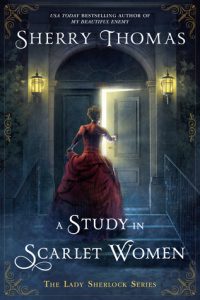 (This is a hint, by the way. Theoretically the books in this series could be read as standalone, but I wouldn’t recommend it. It’s not just that the endings of each book flow into the next, but that there’s a vast, interconnected and rather sticky web between all of the cases – at least so far. I’m glad I began at the beginning with A
(This is a hint, by the way. Theoretically the books in this series could be read as standalone, but I wouldn’t recommend it. It’s not just that the endings of each book flow into the next, but that there’s a vast, interconnected and rather sticky web between all of the cases – at least so far. I’m glad I began at the beginning with A Escape Rating B+: I have consistently found this series to be fascinating and frustrating in equal measure – and this entry in the series is no exception.
Escape Rating B+: I have consistently found this series to be fascinating and frustrating in equal measure – and this entry in the series is no exception. This story is also a bit of a mirror image to
This story is also a bit of a mirror image to  We Speak Through the Mountain (Annual Migration of Clouds, #2) by
We Speak Through the Mountain (Annual Migration of Clouds, #2) by  Escape Rating B+: I had not read
Escape Rating B+: I had not read 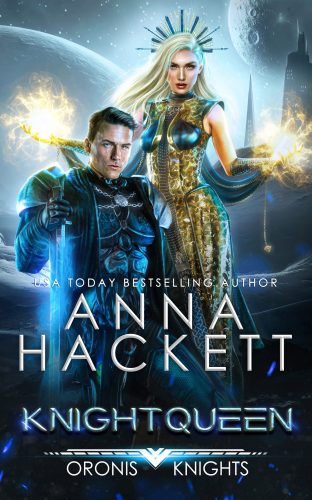 Knightqueen by
Knightqueen by  When last we left our heroes – actually, in this particular case, it’s more like “when first we met our heroes” back in the first book in the
When last we left our heroes – actually, in this particular case, it’s more like “when first we met our heroes” back in the first book in the  Escape Rating B+: Knightqueen is the culmination of the whole, entire
Escape Rating B+: Knightqueen is the culmination of the whole, entire 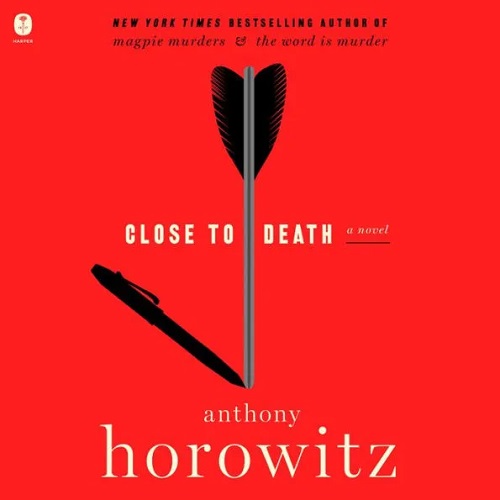 Close to Death (Hawthorne & Horowitz, #5) by
Close to Death (Hawthorne & Horowitz, #5) by 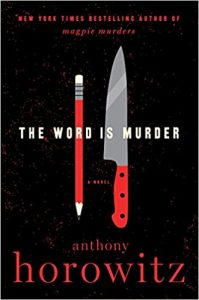
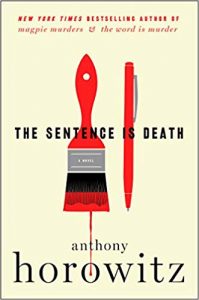
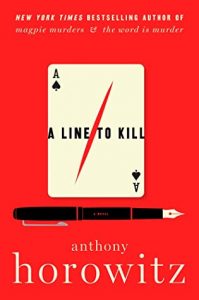
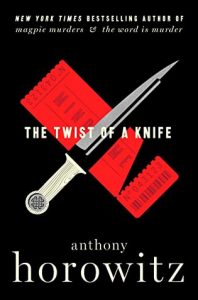
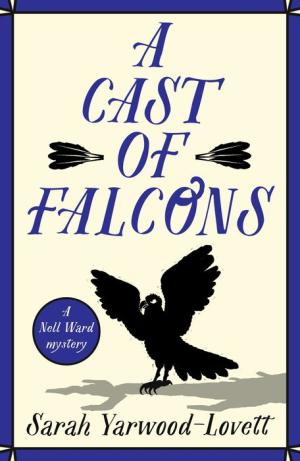 A Cast of Falcons by
A Cast of Falcons by 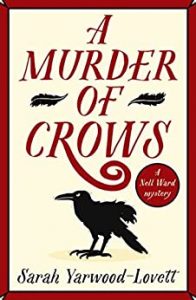 It really couldn’t have happened to a more deserving fellow. Unfortunately the same can’t be said for whoever did the world a favor by bashing Hawke McAnstruther over the head before he could do any further damage to Nell Ward’s best friend Percy and her family.
It really couldn’t have happened to a more deserving fellow. Unfortunately the same can’t be said for whoever did the world a favor by bashing Hawke McAnstruther over the head before he could do any further damage to Nell Ward’s best friend Percy and her family.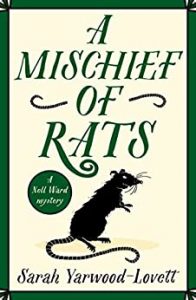 There are plenty of suspects for Hawke’s murder, as the man was a charming, conniving slimeball who left a trail of ruined companies and broken people in his wake – and clearly planned to do the same to Percy, her family, and her family’s properties.
There are plenty of suspects for Hawke’s murder, as the man was a charming, conniving slimeball who left a trail of ruined companies and broken people in his wake – and clearly planned to do the same to Percy, her family, and her family’s properties.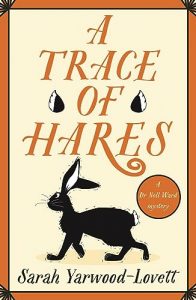 Escape Rating B+: The latest book in this series,
Escape Rating B+: The latest book in this series, 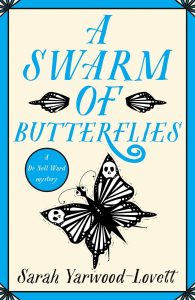 I found Nell to be a likable amateur investigator, and certainly felt for her inability to keep herself out of the investigation. After her previous experience, I wouldn’t have trusted the police either – which makes her decision to date the man who investigated her the first time around a bit questionable. While the ‘torn between two (potential) lovers’ dilemma that Nell is in the midst of isn’t my favorite, it was certainly an interesting twist on the theme to experience it more from one of those two lovers’ points of view instead of Nell’s. I’m hoping that she sticks to the choice she made in future books in the series, but we’ll see.
I found Nell to be a likable amateur investigator, and certainly felt for her inability to keep herself out of the investigation. After her previous experience, I wouldn’t have trusted the police either – which makes her decision to date the man who investigated her the first time around a bit questionable. While the ‘torn between two (potential) lovers’ dilemma that Nell is in the midst of isn’t my favorite, it was certainly an interesting twist on the theme to experience it more from one of those two lovers’ points of view instead of Nell’s. I’m hoping that she sticks to the choice she made in future books in the series, but we’ll see.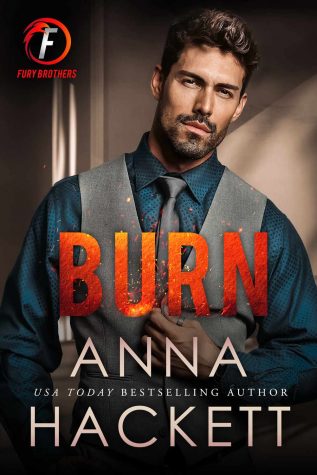 Burn (Fury Brothers #3) by
Burn (Fury Brothers #3) by  As this third entry in the
As this third entry in the 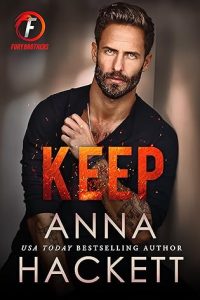 Like the first two books,
Like the first two books, 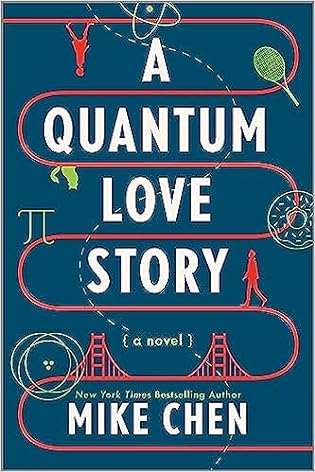 A Quantum Love Story by
A Quantum Love Story by  Escape Rating B+: If the blurb or the description above are making you think of the movie
Escape Rating B+: If the blurb or the description above are making you think of the movie 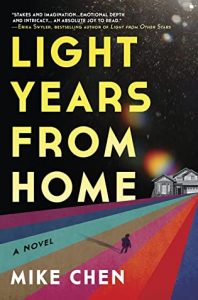 But the chasing down of just how many different time loop stories this one brought to mind kept me from being as invested in Carter and Mariana’s problem solving through their loops, although the emotional journey they took did hold my interest even as it briefly looked like it was heading for
But the chasing down of just how many different time loop stories this one brought to mind kept me from being as invested in Carter and Mariana’s problem solving through their loops, although the emotional journey they took did hold my interest even as it briefly looked like it was heading for 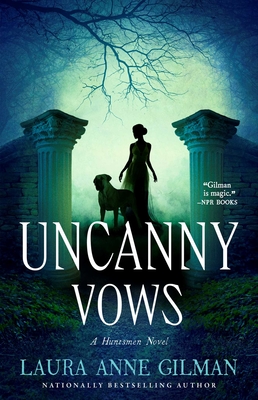 Uncanny Vows (Huntsmen, #2) by
Uncanny Vows (Huntsmen, #2) by 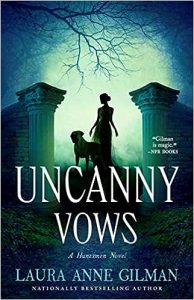 If the idea that the Harker family is somehow involved with the things that go bump in the night feels familiar but you can’t quite remember why, it’s because it IS familiar. Jonathan Harker got himself mixed up with a famous vampire in a little place called Transylvania a mere couple of decades before we first met Aaron and Rosemary Harker in the first book in the
If the idea that the Harker family is somehow involved with the things that go bump in the night feels familiar but you can’t quite remember why, it’s because it IS familiar. Jonathan Harker got himself mixed up with a famous vampire in a little place called Transylvania a mere couple of decades before we first met Aaron and Rosemary Harker in the first book in the 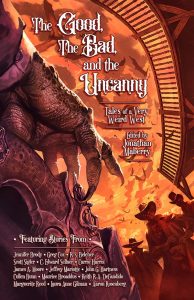 Escape Rating B+: So far, at least, the
Escape Rating B+: So far, at least, the  At the same time, the heavy lifting of setting up the world and the series has already been done in that first book, so this one is able to sink its teeth into the case from the very first page – and that they drive off in Aaron’s rented ‘automotive” gets things going that much faster, while Rosemary’s dislike of the speed, the dust, and Aaron’s relative inexperience driving the thing adds a bit of lightness to what is otherwise a rather dark story of obsession and possession.
At the same time, the heavy lifting of setting up the world and the series has already been done in that first book, so this one is able to sink its teeth into the case from the very first page – and that they drive off in Aaron’s rented ‘automotive” gets things going that much faster, while Rosemary’s dislike of the speed, the dust, and Aaron’s relative inexperience driving the thing adds a bit of lightness to what is otherwise a rather dark story of obsession and possession.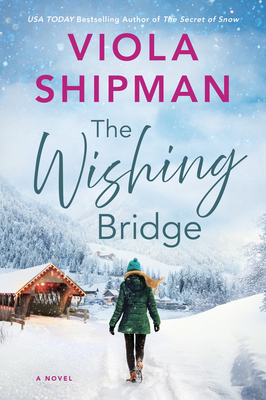 The Wishing Bridge by
The Wishing Bridge by 